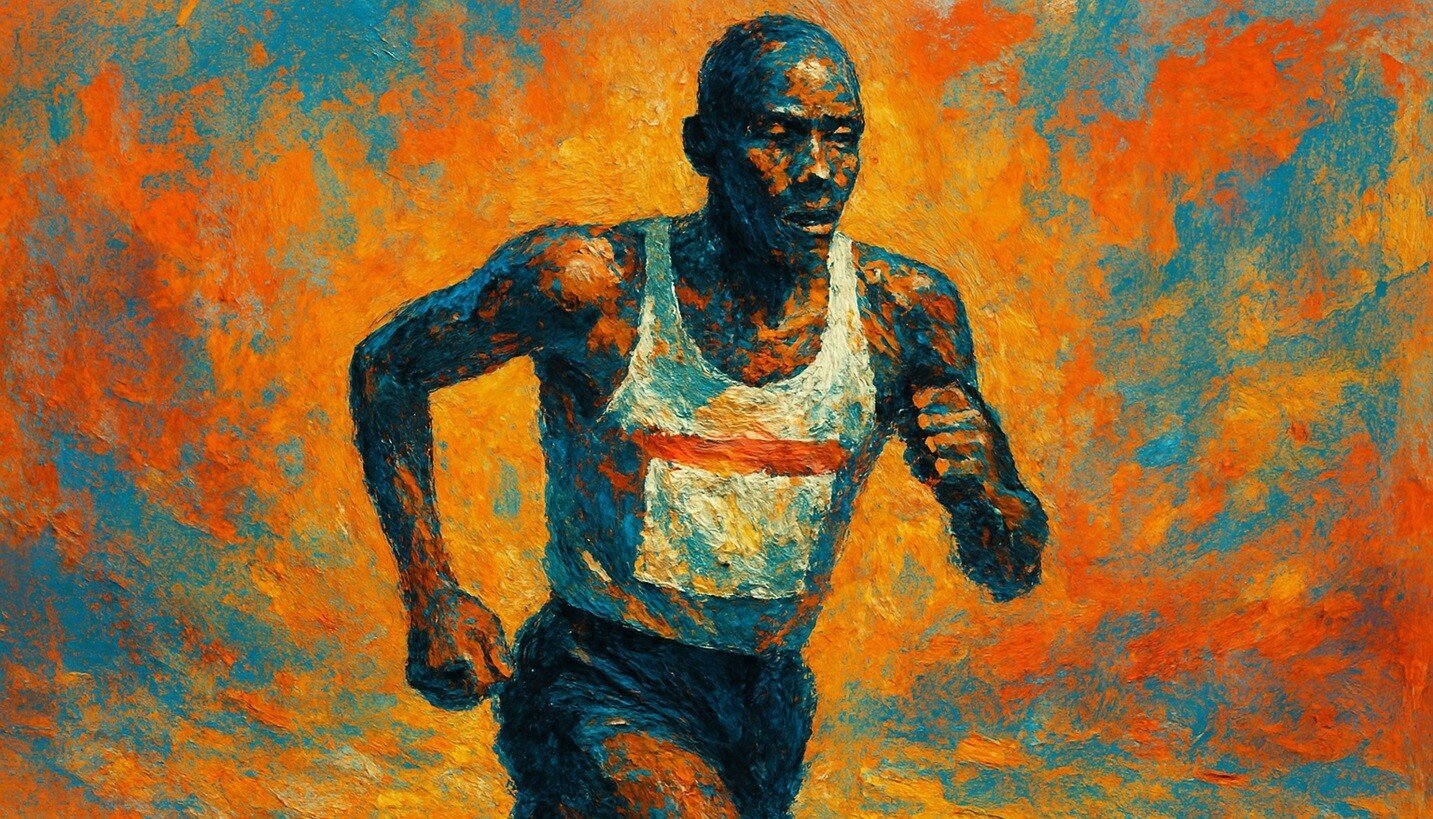Ted Corbitt: The Quiet Titan of Ultrarunning
When we talk about running legends, names like Prefontaine, Kipchoge, and Bannister often come up. But among them, there’s one pioneer whose contributions went beyond breaking records—Ted Corbitt. He wasn’t just a runner; he was a movement. A force of nature who redefined distance running and left an indelible mark on the sport.
A Humble Beginning
Born in South Carolina in 1919, Ted Corbitt grew up in an era when segregation dictated nearly every aspect of life for Black Americans. His love for running started early, inspired by watching athletes race in his hometown. But at that time, opportunities for Black runners were few and far between. Nevertheless, Corbitt persisted, running barefoot as a child and later competing in track events during high school.
After serving in World War II, Corbitt attended the University of Cincinnati, where he competed in cross country and track. Despite facing brutal racial barriers, he remained focused on his studies and training. He eventually earned a master’s degree in physical therapy from New York University, a career path he would follow alongside his athletic pursuits.
Marathon Man and Ultra Pioneer
Corbitt’s competitive running career took off in the late 1940s, but he truly made a name for himself in the 1950s and ‘60s. He was one of the first Black American distance runners to compete at the highest levels, running the marathon at the 1952 Helsinki Olympics. Though he didn’t win, just making the U.S. Olympic team at a time when opportunities for Black athletes were limited was an achievement in itself.
But marathons weren’t enough for Corbitt. He craved longer, more grueling challenges. Before ultra-marathons were even recognized as a “thing”, Corbitt was already pushing the limits of human endurance. In 1959, he ran a 100-mile race, finishing in under 14 hours, a staggering feat for the time. He later completed a 24-hour race where he covered over 134 miles, setting an American record.
His training regimen? Legendary. He regularly logged 200-mile weeks, running to and from work while carrying his work clothes in a backpack. He once ran from Manhattan to the Bronx and back, just for fun. He even experimented with what we now call “fasted running,” often training on empty to build endurance.
Revolutionizing the Sport
If Corbitt had only been a great runner, that would have been impressive enough. But he did much more. He helped shape the future of distance running in the United States.
Standardizing Course Measurement – Corbitt played a crucial role in developing accurate racecourse measurements. He co-founded the Road Runners Club of America (RRCA) and also co-founded and served as the first President of the New York Road Runners (NYRR). Corbitt helped create the modern system of measuring courses with a calibrated bicycle wheel. This ensured that marathon and ultra-marathon courses were precise, a standard still used today.
Paving the Way for Ultra-Marathons – While ultra-running is booming now, it was almost unheard of in the mid-20th century. Corbitt’s performances legitimized the idea of races longer than the marathon. His influence helped lay the foundation for today’s ultra-endurance events like the Western States 100 and the Badwater 135.
Diversity and Inclusion in Running – As a Black athlete in the Jim Crow era, Corbitt faced deep racism throughout his career. Yet, through it all he remained committed to opening doors for others. He inspired countless Black runners and was a quiet but persistent advocate for inclusivity in long-distance running.
Longevity in Sport – Corbitt’s passion for running never faded. Well into his 80s, he was still completing ultra-distance walks and runs. He became a role model for athletes proving that endurance isn’t just about speed, it’s about resilience, commitment, and love for the sport.
A Legacy That Lives On
Ted Corbitt passed away in 2007 at the age of 88, but his influence is woven into the fabric of modern running. The New York Road Runners (NYRR) honor his contributions with the Ted Corbitt 15K race, and he is celebrated as the "Father of Ultramarathon Running."
His legacy isn’t just in the records he set but in the spirit of perseverance, discipline, and quiet strength he embodied. He wasn’t flashy, he wasn’t boastful, he just ran. And in doing so, he changed the sport forever.
If you ever find yourself grinding through mile 20 of a marathon, or contemplating an ultra-distance challenge, think of Ted Corbitt. He paved the way, one step at a time, proving that the human body and spirit are capable of far more than we imagine.
About UP:
Promoting quality content that cracks open the mind and sparks curiosity. Standing Cyclist presents Useful Possibilities (UP), spotlighting extraordinary teachers and leaders, athletes and activists, researchers and writers, filmmakers and engineers, and their groundbreaking projects. UP recognizes individuals and teams who raise awareness and drive innovation in areas such as health and wellness, environmental science, spirituality, personal growth, and human rights. We celebrate those who promote unity, tolerance, respectful collaboration, mindful living, and the [responsible] use of technology, social media, and modern marketing tools. Honoring people and content that inspire us to be the very best versions of ourselves.









